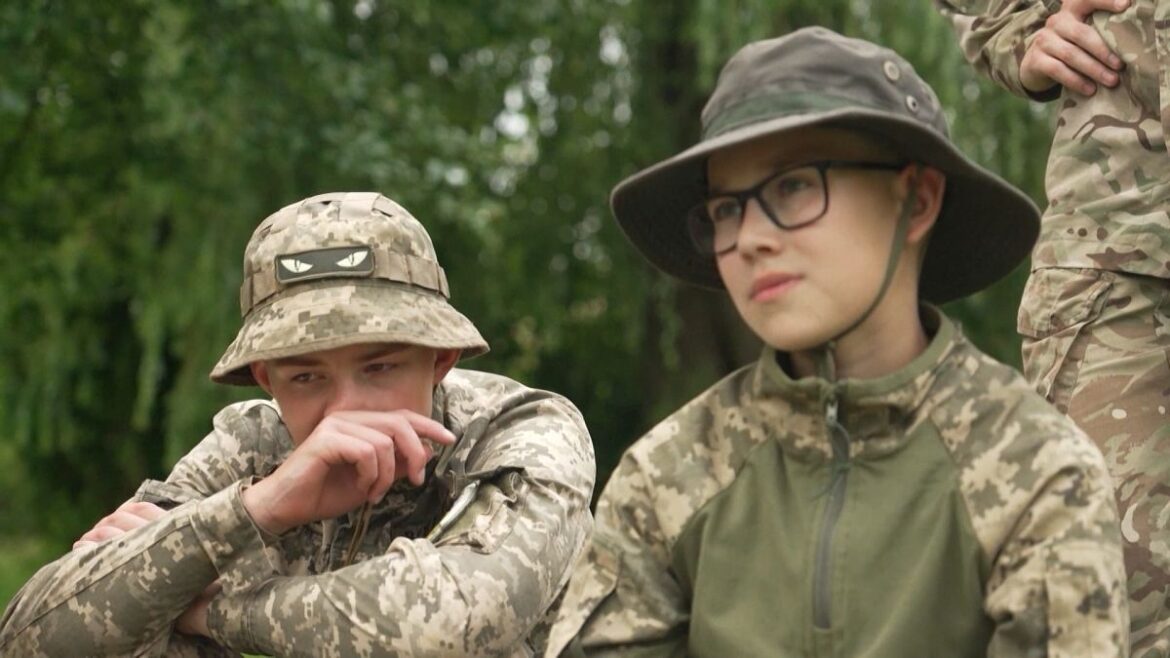A commander distributes rifles to the separate battle group. Finally, copies. The soldiers here are only teenagers, some still very young.
This is an after-school club for children in Shepetivka, western Ukraine. Schoolchildren meet three times a week to prepare for life in a country gripped by a devastating war sparked by Russia.
Olena Drachuk, a sergeant major in an air defense unit, is the only adult present. She founded the program in 2015 with donations, grants and local government support.
When Russia launched its full-scale invasion in 2022, the club’s activities became more urgent. But Olena says her mission is not limited to training future soldiers.
Olena primarily acts as a supervisor, while the older children teach the younger ones difficult military skills, such as assembling a real Kalashnikov.
They use wooden rifles for drills, but there is no question of playing. They are fully aware that their lives could one day depend on this training. They impose discipline and enjoy difficult conditions, like the brief downpour that drenched the field today.
Danylo, 16, is a role model for younger people. Both of his parents serve in the military and he is committed to doing the same.
At twelve years old, Stepan is the second youngest in the group. He hopes to follow another path.
There are hundreds of youth groups like this in Ukraine, and their numbers have increased significantly since the all-out invasion. This is what the Ministry of Youth and Sports says, which provides direct financial support to the largest groups.
Over the past two years, the ministry has organized conferences for youth groups across the country, attended by 74,000 young people.
After two hours of exercises, morale is high, but the walls are covered with sobering reminders of the war.
In particular, photos of young men, graduates of the program, who died on the front line. Several other graduates are still fighting.
As they change back into civilian clothing, the members of the Separate Battle Group become children again. Some of them still have five or six years before they become adults and have to make adult decisions. For others, this stage is just a few months away.



